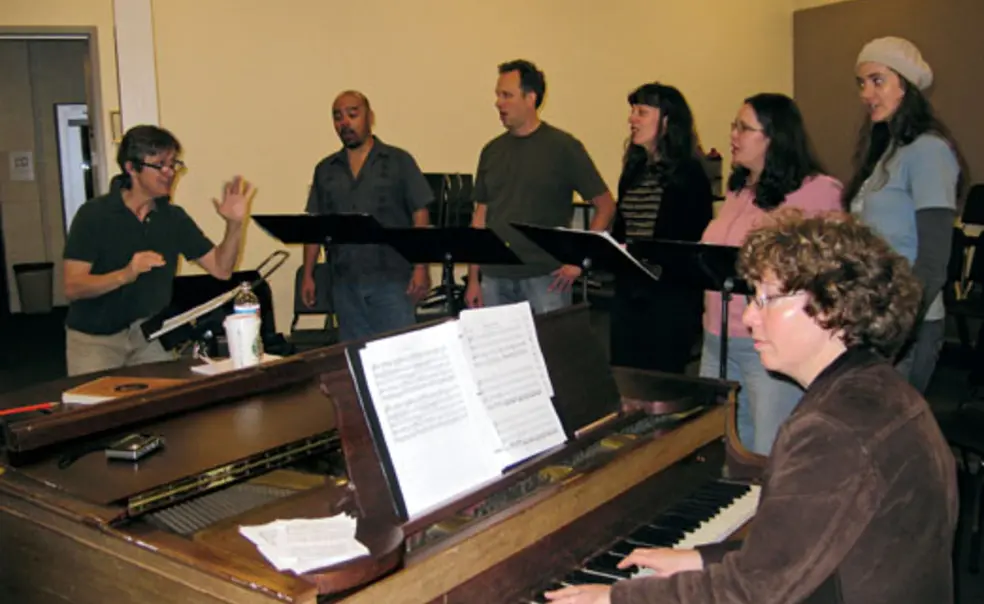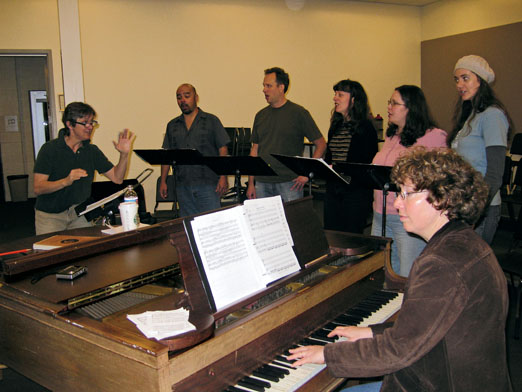Exploring the messy realities of war
Lisa Scola Prosek '81 composes opera about an American soldier
In December 2006, Lisa Scola Prosek ’81 read the latest issue of PAW, went to bed, and dreamed an opera. The article that burrowed itself into the composer’s subconscious described a young alumnus, Nate Rawlings ’04, serving in Iraq. Trap Door — the opera that emerged and is running through June 14 at the experimental arts organization The Lab, in San Francisco — is the tale of a soldier who heads off to the Middle East idealistic about service and sacrifice, only to find himself ensnared in the messy realities of war.
“It’s a one-way trip,” says Prosek, explaining the title. “He’s never restored to that innocence.” Prosek notes that while she drew on Rawlings’ ideas and personality as expressed in Whitney Terrell ’91’s PAW story to sketch the character of her protagonist, the events described in the opera are fictional. Prosek tried to track down Rawlings, but they never connected.
With a cast of eight, an orchestra of seven, and sets enhanced with videos from Iraq projected on backdrops, the story opens with the protagonist facing court-martial for shooting an unarmed Iraqi. It then backtracks to the soldier in basic training, his deployment overseas, a roadside bomb attack, and another battle that leaves him slightly wounded. It ends with the shooting, which takes place during the heat and confusion of close-quarters combat.
Prosek, who majored in music at Princeton and is a director of the San Francisco Composers Chamber Orchestra, has two oratorios and five operas (in both Italian and English) under her belt.
Shortly before seeing Terrell’s article, Prosek read an account of soldiers serving in Lebanon in the ’80s. But its portrayal of U.S. soldiers as two-dimensional brutes disturbed her. “I felt I had to three-dimensionalize these guys,” Prosek says.
In Trap Door, Prosek explores the ambiguities troops face on the ground: “the nature of the enemy — battling IEDs [roadside bombs] instead of an army; the ambiguity of the American reaction; ... and the ambiguity of being caught doing something that seemed right at the time, because you felt threatened.”
E.B. Boyd ’89 is a writer in San Francisco.













No responses yet